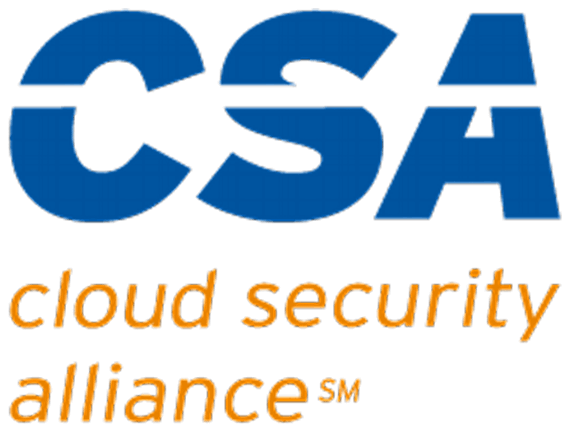Introduction
If you’re like most people, you take your Internet connection for granted. You expect to be able to go online whenever you want without worrying whether or not the connection will be fast enough. But what if it’s not? What if your Internet is slow, and you don’t know why? This article will discuss some of the common causes of a slow Internet connection and how you can diagnose and fix the problem.
This article is intended for situations where your Internet connection speed has suddenly or recently degraded. If your Internet has always been unacceptably slow, you may need to contact your ISP, review the guaranteed speeds of your Internet plan (and test that you are getting those speeds using the methods described below), and consider an upgraded plan. Also, keep in mind that some ISPs will cap traffic or perform “throttling,” which deliberately limits Internet speed, once a certain usage level has been met.
Reasons why your internet connection has suddenly slowed down
It’s important to understand that your Internet connection can slow down for many reasons. A common cause is when the network you’re connecting through, such as at home or the office, becomes overloaded with traffic. Other factors include faulty equipment (cables and routers), interference from other devices nearby, and even malware on your computer. The best way to determine the cause of your slow Internet connection is by troubleshooting.
How to diagnose a slow internet connection
The first step in diagnosing a slow Internet connection is to run an online speed test. Doing so will measure the speed of your current connection for both outbound (“upload”) and inbound (“download”) traffic. You can do this by going to google.com and searching for “Internet speed test.” Click the button in the search results to launch the speed test. Other popular speed testing sites include speedtest.net and speedtest.xfinity.com.
If the speed test shows that your connection is faster than you’re used to, you may not have a problem with your Internet connection. If it’s slower than usual – particularly if it’s significantly slower than the speed guaranteed by your ISP – there are several things you can try.
Steps to resolve a slower Internet connection
If you’ve determined that your connection is unusually slow, here are some steps you can take to try and resolve it:
Check your equipment
Ensure all of your cables are plugged in securely and that your router is working normally (not showing any faults or warnings). If you have a wireless connection, make sure the signal is strong enough in the areas where you are trying to use it.
Limit the number of devices on your network to isolate the problem
Multiple devices accessing the Internet at once can cause a slowdown in Internet speed. Try disconnecting some of them, and if that improves your speed, reconnect just one at a time until you notice an impact on performance. This can help you isolate any issues with bandwidth usage or interference by a specific device.
Quality of Service (QoS) is a feature that prioritizes traffic on your network. You can use it to allocate more bandwidth for specific devices and applications, so you don’t have to deal with the Internet slowing down when someone else starts streaming video or downloading files. Check your router for QoS features.
Reboot your computer
Sometimes, the issue is with your computer rather than your Internet connection. For example, if you have a lot of applications running in the background on your PC or Mac, they may be interfering with Internet performance. Restarting your computer can also help resolve bugs or stability issues that could be causing poor performance.
Try a different web browser or website
You may be experiencing issues with Internet performance when using a particular web browser or when accessing certain websites. Try another browser or visit a different website to see if your Internet speed improves. You can also check the status of any website you’re trying to access by searching for it on downforeveryoneorjustme.com.
Update your software and drivers
Ensure you’re using the latest versions of all your software, including web browsers, operating systems, and antivirus programs. Out-of-date software can sometimes cause compatibility issues or other performance problems. You should also check to see if there are any new drivers available for your devices and install them.
Restart your router and modem
This is a common troubleshooting step that can often clear up temporary network congestion or other connection problems. Unplug both devices for about 30 seconds, then plug them back in and wait for them to start up completely before trying to use the Internet again.
Change your DNS server address
If you’re using the default DNS server provided by your ISP, you may want to try changing to another one. This can improve performance in some cases, but it’s not guaranteed to work for everyone. You can find a list of public DNS servers at www.techradar.com/news/best-dns-server.
Use an Ethernet connection instead of Wi-Fi
Try switching to an Ethernet cable if you’re using a wireless connection. This can often improve performance by eliminating interference from other devices nearby and providing faster data transfer speeds overall. If this doesn’t help, try moving your router closer to the computer or device experiencing slow Internet speeds.
Try connecting in another location
If you’ve tried all of the above and your Internet connection is still slow, try connecting in another location. This could be a different room in your house or even a different building altogether. If a subsequent speed test shows that the problem isn’t with your equipment or your network, it’s likely an issue with your ISP.
Check for malware
If all else fails, you may want to check your computer for malware. This is a particularly common problem on laptops, which can be easily infected when you’re out and about. Many free malware removal programs are available online, such as Malwarebytes, Kaspersky, and Avast.
Conclusion
There are many potential reasons why your Internet connection might be slow, but you can often diagnose and fix the problem yourself by following these steps. If you’ve tried all of these steps and your Internet connection still isn’t performing the way you expect it to, it may be time to contact your ISP. They can help you troubleshoot the problem and determine if there is anything else that can be done.




